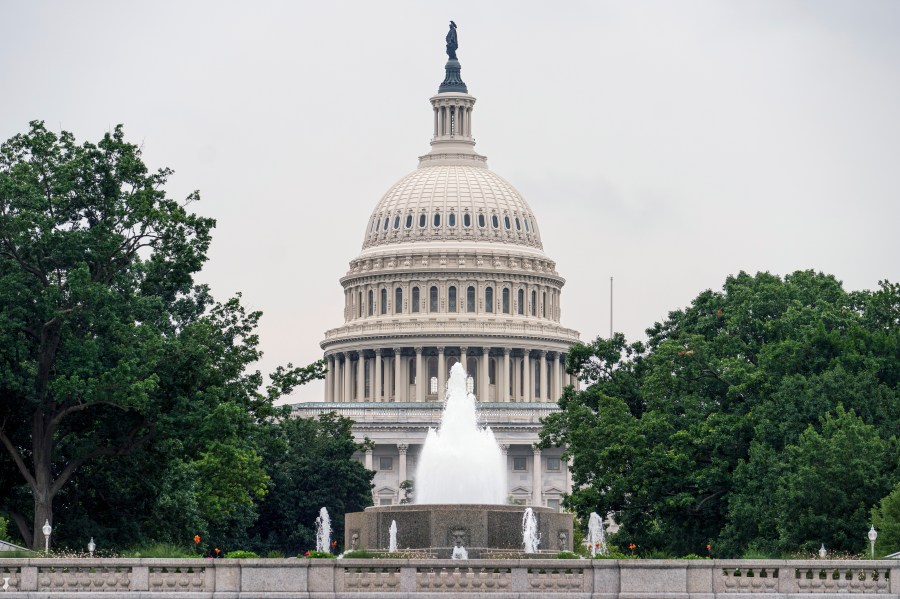
The Congressional Budget Office (CBO) projected on Friday that the federal budget deficit would hit $1.9 trillion in fiscal year 2025.
The nonpartisan budget scorekeeper estimated that federal spending would total $7 trillion during the fiscal year, amounting to 23.3 percent of the country’s gross domestic product (GDP). That figure is estimated to reach 24.4 in 2035, as spending in areas like Social Security, Medicare and net interest costs is expected to grow.
At the same time, revenues are projected to hit $5.2 trillion this year, reaching 17.1 percent of the nation’s GDP. The figure is estimated to rise 1.1 percent by 2027 and see an overall 0.1 percent increase by 2025.
The CBO cited expiring provisions of President-elect Trump’s 2017 tax law as a key factor behind the increases in revenues.
It also noted downward revisions to its projections of the cumulative deficit through 2034, as a result of estimated growth in “projected collections of individual income taxes, driven by greater projections of taxable income.”
The recent figures arrive in the backdrop of a jam-packed year for the newly sworn-in GOP-led Congress and a returning Trump administration, as Republicans set ambitious sights on passing the incoming president’s tax agenda.
That includes protecting individual provisions that are set to expire later this year, which, if lapsed, would mean higher income tax rates for most earners, a lower standard deduction, and a rollback of the cap on the state and local tax (SALT) deduction, among other changes.
However, some have already floated tax changes that fiscal hawks are concerned could mean a higher pricetag for an overall tax package – already signaling headaches for House GOP leadership as it works to keep the party unified on pushing through a significant tax package with a slim majority.
Multiple analyses have estimated extending Trump’s tax cuts could mean trillions of dollars added to the nation’s deficits in the coming years.
The debt limit could further complicate those efforts. The Treasury Department has already said it expects it will need to begin taking extraordinary measures sometime this month to keep the nation from defaulting on its roughly $36 trillion debt.
In the CBO’s latest report, it projects the debt subject to limit to continue its upward trajectory over the next decade, reaching roughly $59.3 trillion in 2035.

